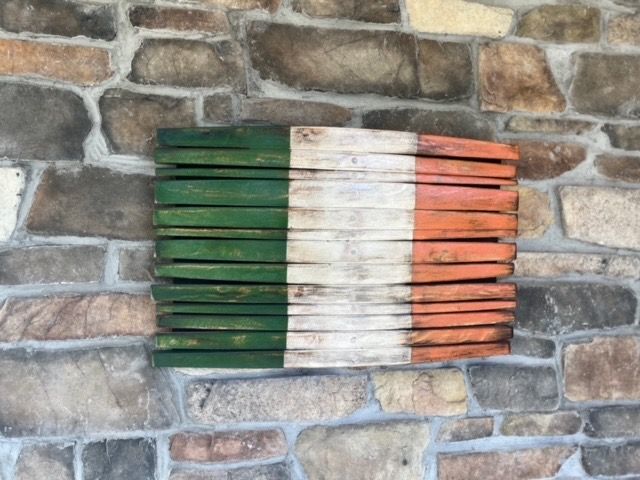Theresa Villiers
By Ray O’Hanlon
rohanlon@irishecho.com
Whatever the future of the United Kingdom, and that part of it that is to be found on the island of Ireland, one thing certain is that women political leaders will be deciding much of it.
And on the continent, one woman in particular, Angela Merkel, may well be deciding just about all of it.
But back to the UK and its lately awkward appendage, or rather appendages, Northern Ireland and Scotland.
The first ministers in both are women though Arlene Foster in Belfast and Nicola Sturgeon in Edinburgh are on opposite sides of the European Union issue as much as they are on different shores lapped by the North Channel.
In Belfast, Foster and the DUP are standing firm in support of Brexit.
And if that’s a lonely place to be right now, given that all the other North partiers supported continued membership of the EU – Foster has supportive company in the person of North Secretary of State, Theresa Villiers.
It’s not a stretch to say that when Villiers - the member of parliament for Chipping Barnet no less - turned up in Belfast in 2012, many among the grizzled veterans of the North’s, well, grizzled politics, gave the newcomer scant regard.
She was barely in her mid-forties and looked younger. She came from a Tory blue blood family that was about as far removed from most northern folk as you could imagine.
A widespread impression was that she didn’t seem to know much about what was going on.
And she could not have been more different in style from the only other woman to occupy the North Secretary of State’s office, the late Labour MP, Mo Mowlam.
That was then and this is now.
In the recent referendum, Villiers, four years into the job and presumably a good deal more tuned into the North’s political vagaries, supported the “Leave” campaign, a cause that triumphed on June 23rd but hasn’t exactly vaulted its leading men into leading positions.
Rather, the UK political landscape is now dominated by women, albeit from both sides of the great Brexit divide.
When it all settles down, women will be in charge not only in Belfast and Edinburgh, but also London.
In the Welsh capital Cardiff, where a man, Welsh Labour Party leader Carwyn Jones, is First Minister, he holds office by virtue of support from the Welsh national party, Plaid Cymru, which is led by a woman, Leanne Wood.
Villiers, meanwhile, signaled her support for a potential new leader of her party after the announcement by Prime Minister David Cameron that he would be stepping down.
Villiers seemed to take the resignation of the pro-Remain Cameron hard, describing it as shocking and saddening.
I entirely respect his decision but I think it is a sad day for the country that he has decided to step down,” she told the BBC.
In opting for her choice to succeed Cameron, Villiers did not back her namesake, the pro-Remain Theresa May, who came out the winner after the first round of voting, and seems to be the favorite to be the next prime minister.
Rather, Villiers backed fellow Brexiteer Andrea Leadsom, who came second in that first round vote.
Writing in the London Evening Standard, the North Secretary left little doubt that she was a Leadsom supporter.
She wrote in part: “Andrea Leadsom has what it takes to go from unheralded outsider to winner in this contest.
“Playing a part in choosing a new prime minister is an onerous responsibility. Reflecting with care leaves me in no doubt that Andrea is the right person to lead our country.
“Andrea is a woman of principle. Her message is fresh and optimistic and it’s backed up by a lifetime of business and political experience.
“During my years in the Cabinet, I’ve seen at first hand the burdens placed on a prime minister. The workload is relentless and the scrutiny is unrelenting. Andrea has the determination and the ability to overcome these challenges and take us forward to the bright future I’m certain we’ll have outside the European Union.”
The leadership race has been whittled down to May and Leadsom at this juncture.
Conservative Party members, by way of a postal ballot, will have the final say in who is next British Prime minister with the result to be made known on September 9.
Either way, the new occupant of Number 10 will be woman.
This outcome has to be encouraging for Villiers, and other up and coming women in the party’s generation that is behind May, 59, and Leadsom, 53.
More than a decade ago, Villiers cast her lot behind an outsider in the then Conservative Party leadership race.
In David Cameron, she backed a winner.
This time around, even if Theresa May triumphs, Villiers still occupies a oisution in her party’s winning Brexit faction.
And since the referendum, and despite the fact that Northern Ireland, along with Scotland, voted to remain in the EU, she has made it abundantly clear that as much as she was supportive of Brexit in a European context she has no time for talk of the North or Scotland forging separate deals with the EU.
Neither, she said, will be able to attain special EU status.
And she has insisted that the UK would be treated as one nation in negotiations with the EU.
The Villiers view was made plain in Belfast on a day in which she engaged in talks with North political leaders and Irish Foreign Minister, Charlie Flanagan.
She said and as the Irish News reported: "EU rules are very clear, membership is at member state level.
"It's a national question, it's not possible within EU rules to have a part of a country being part of the European Union.
"So this decision has been made, the people of the United Kingdom have voted to leave the European Union - that decision is going to be respected, that's what the government will take forward."
She did, however, acknowledge that "particular interests" in the North, primarily the fact it shares a land border with an EU state, would need to be "protected" in the negotiations.
"I believe we can keep a border which is as open and free-flowing as it is today," she said.
"I believe it is in the interests of both the UK and Irish governments to do that. It's clear both governments want to keep an open border.
“I believe, in those circumstances, it's going to be deliverable. It will take some common sense, it will take some negotiation, but it's not rational for the European Union to want to block something which is in the interests of one of its remaining member states - i.e. Ireland."
All this is well enough from a pro-Brexit vantage point.
But Villiers - who served six years as a member of the European parliament despite her avowed Euroscepticism - now finds herself having to deal with a majority of North politicians who were in favor of a Remain vote in the referendum.
As far back as January, Colum Eastwood, the newly minted leader of the SDLP, was stating that Villiers could not remain in her North posting if she campaigned for Brexit.
She did, and now an actual Brexit appears to be only a matter of time.
And Theresa Villiers is certain that it is the right course for the United Kingdom - all of it.
Somewhere, Margaret Thatcher is nodding approvingly of such rock-like certainty.










